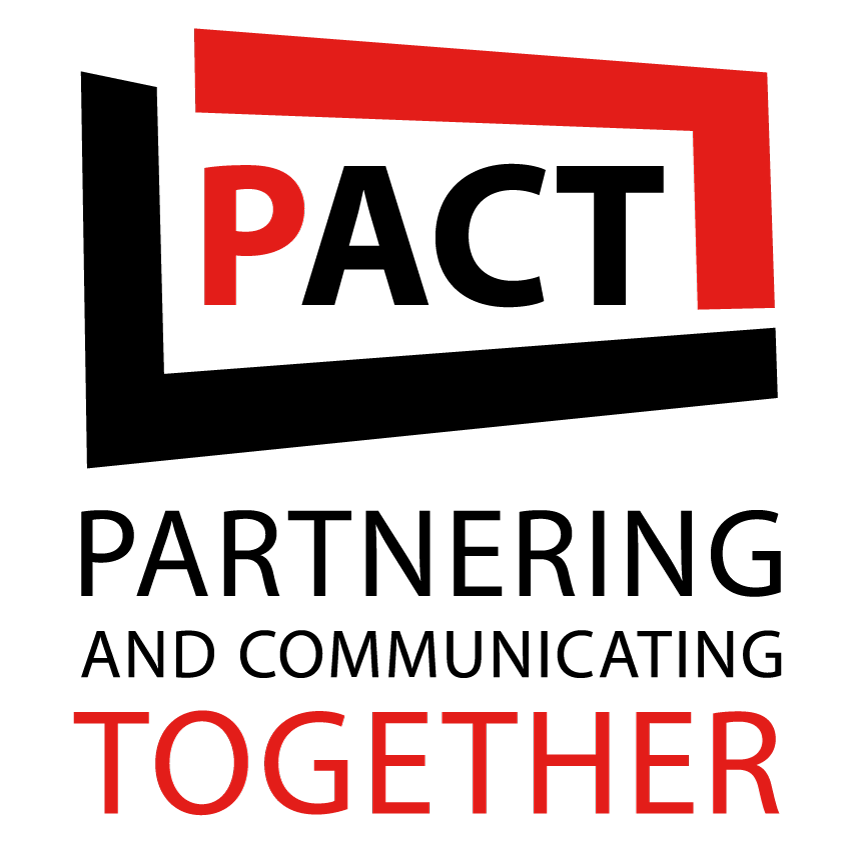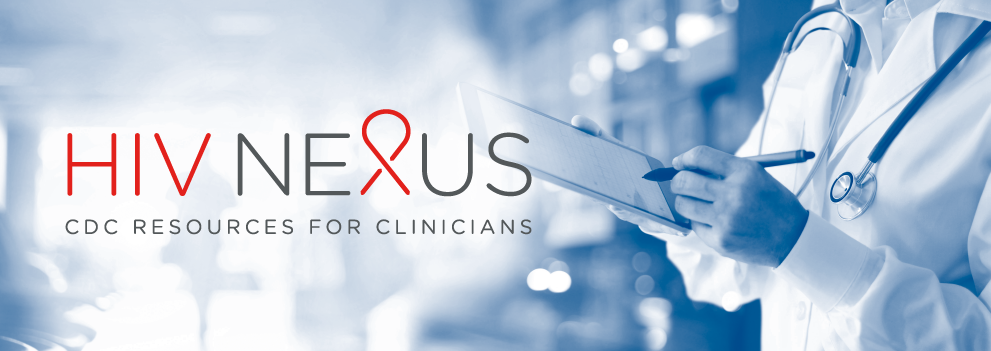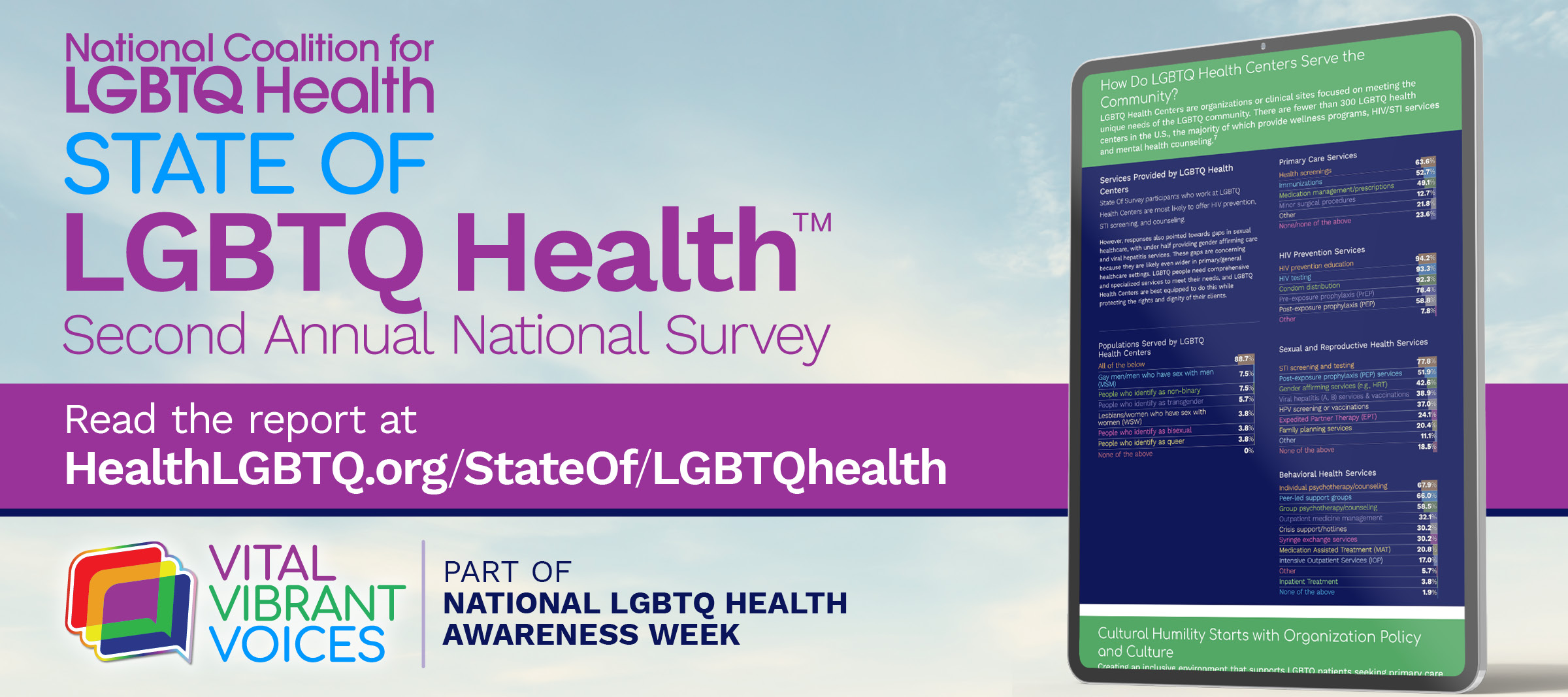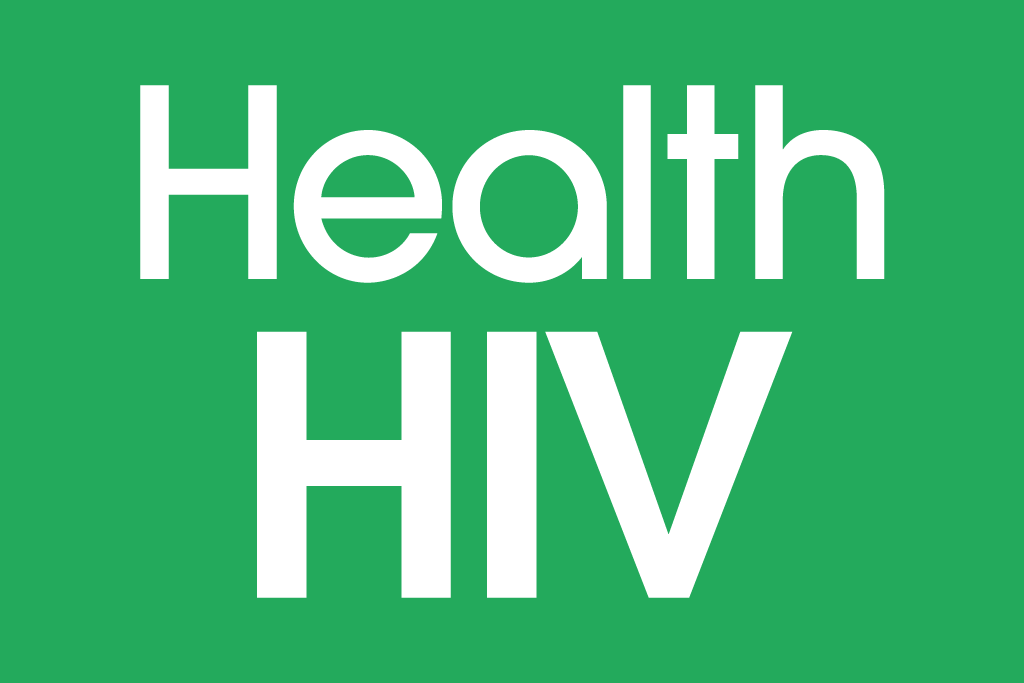Coalition releases report on its second annual State of LGBTQ Health survey
FOR IMMEDIATE RELEASE
Media Contact: Scott Bertani
Director of Advocacy
[email protected]
Washington, DC, March 18, 2024— The findings of a new national survey conducted by the National Coalition for LGBTQ Health highlight significant barriers to care, a lack of provider training, and a rise in stigma and criminalization. The Coalition is releasing a digital report on these national survey findings during its 22nd National LGBTQ Health Awareness Week, themed “VITAL VIBRANT VOICES.” The Week runs from March 18 to March 22, 2024. Read the full report here: https://healthlgbtq.org/stateof/lgbtqhealth/
More than 1,000 clinical and service providers across the United States completed the survey and were asked to describe the state of LGBTQ health in one word. The top three submitted words were “lacking,” “poor,” and “inadequate,” which suggest a widening gap between the need for care and the available resources to provide care. Despite the critical need for greater allocation of resources to support LGBTQ health, healthcare providers continually report feeling unprepared to meet the needs of their LGBTQ clients and patients.
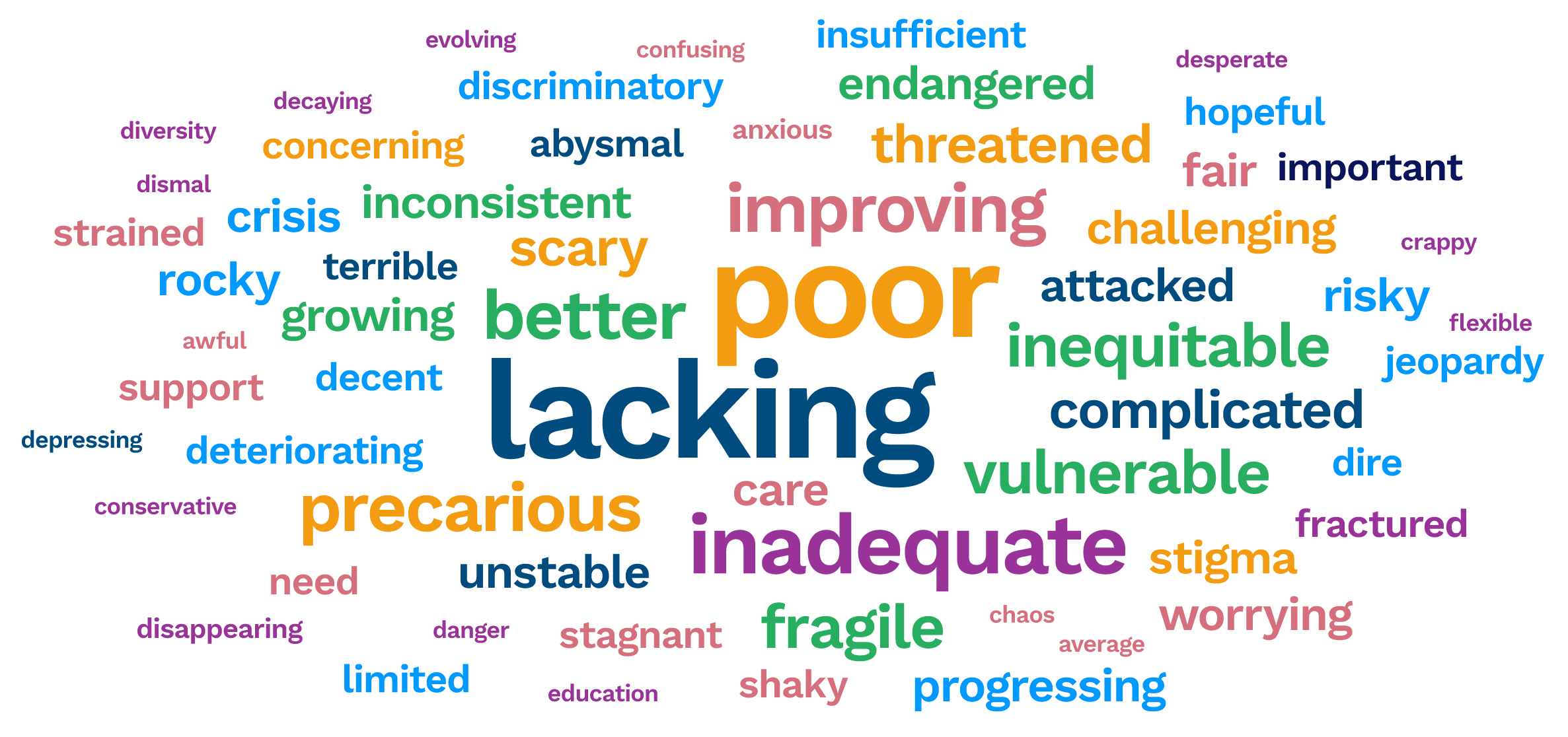
Key findings from the survey highlight the need to address barriers to care by:
- Elevating LGBTQ-Centered Care: recruit sensitive staff, provide comprehensive training, and collaborate with experienced providers.
- Prioritizing LGBTQ Health Advocacy: focus on vital issues such as LGBTQ equality, gender-affirming care protections, and affordable housing for LGBTQ individuals.
- Increasing Awareness of Anti-LGBTQ Bills: educate providers on specific, state-by-state legal challenges affecting LGBTQ individuals, especially transgender.
- Providing Comprehensive Continuing Education for LGBTQ Providers: battle stigma, create inclusive spaces, and address health disparities.
- Removing Barriers to LGBTQ Healthcare: address pervasive stigma, distrust in the healthcare system, mental health challenges, cost constraints, and insurance issues.
In addition to these findings, 80% of respondents exhibited confidence in using culturally appropriate terminology when communicating with LGBTQ patients, which fosters a more welcoming environment.
“Our survey exposes a stark reality: numerous healthcare providers, typically outside LGBTQ-specific health centers, still lack the necessary training to deliver basic LGBTQ care; let alone affirming care that is specific to transgender patients,” said Scott Bertani, lead for The National Coalition for LGBTQ Health. “This shortfall in education leads to provider uncertainty, which in turn leads to less meaningful patient engagement; and that has a true impact on both the physical and mental health outcomes for all our communities.”
The survey findings illustrate the need for a multi-pronged approach to address LGBTQ health:
- Increased funding for training healthcare providers in LGBTQ-specific care.
- Expansion of gender-affirming healthcare services.
- Stronger protections against discrimination in healthcare settings.
- Combating rising stigma and criminalization through education and advocacy.
The National Coalition for LGBTQ Health urges policymakers, healthcare providers, and LGBTQ advocacy groups to work collaboratively to create a more equitable and inclusive healthcare system for all.
For more information about the report or for interviews, contact Scott Bertani, the National Coalition for LGBTQ Health’s Director of Advocacy, at [email protected].
# # #

